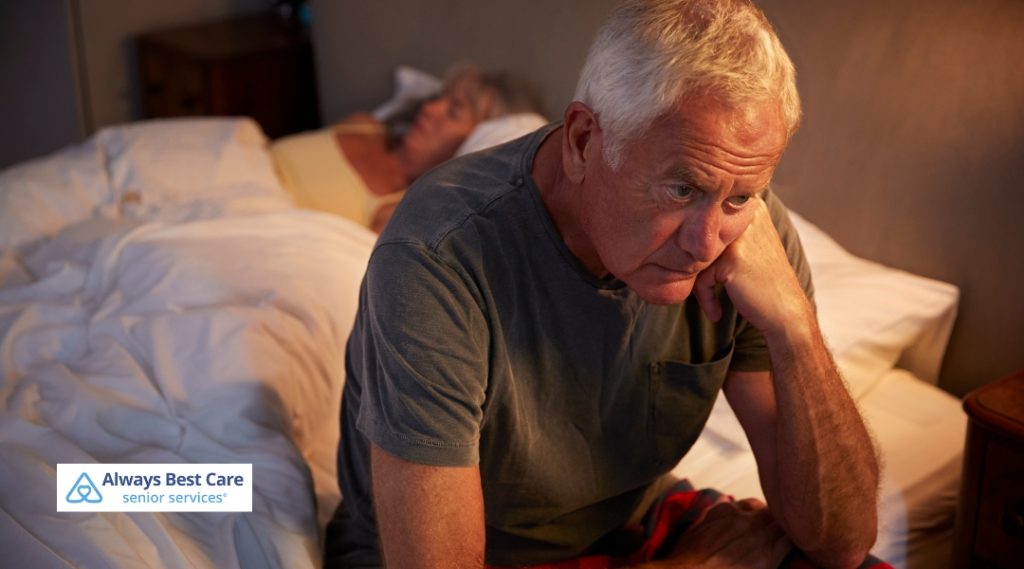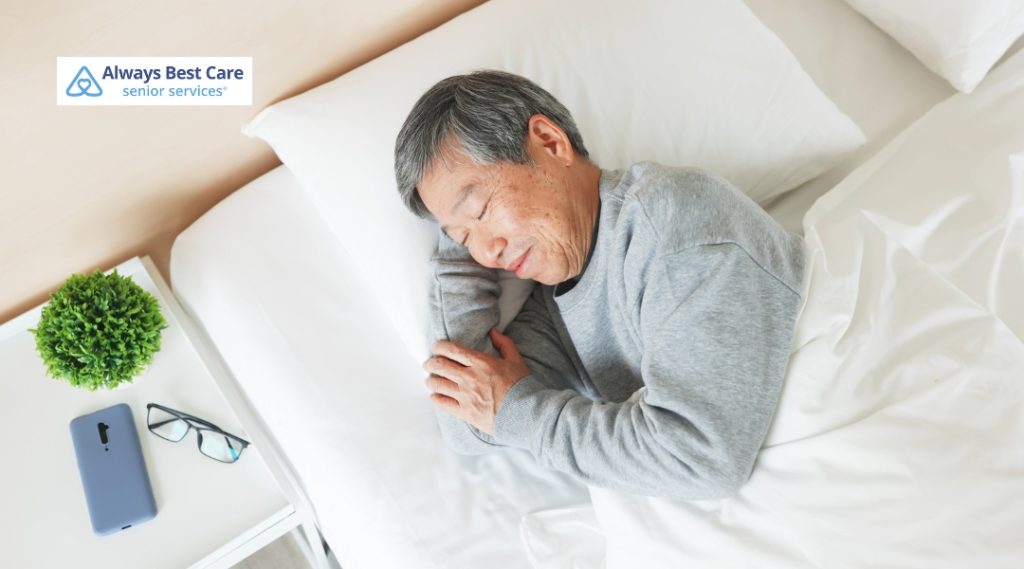Better Sleep for Seniors: Combating Insomnia in Greater Boston, MA

For many seniors in Greater Boston, a good night’s sleep can feel like an elusive dream.
If you or someone you know is struggling with sleepless nights, you’re not alone.
Insomnia is a common issue for seniors, and it can have a big impact on overall health, mood, and quality of life.
But don’t worry—better sleep is within reach!
Here’s a look at what causes sleep troubles, how to combat insomnia, and ways to make the most of your golden years, starting with a restful night’s sleep.
Table of Contents
Why Seniors Struggle with Sleep
Hormonal changes, slower metabolism, and even the normal aging process can all play a role in disrupting sleep.
In Greater Boston, seniors face specific challenges, too. The cold winters can make it hard to stay comfortable at night, and the shorter days can mess with our natural body clocks, making it harder to fall asleep or stay asleep.
There’s also the added stress of managing health conditions, which is a common challenge for seniors.
Pain, discomfort, or medications can contribute to restless nights.
And let’s not forget about lifestyle factors—everything from drinking too much caffeine to being glued to screens late into the night can throw off your sleep schedule.

The Consequences of Poor Sleep for Seniors
Not getting enough sleep doesn’t just leave you feeling groggy the next day—it can have some serious consequences for your health.
When seniors don’t get enough rest, it can lead to memory problems, difficulty concentrating, and a general sense of mental fog.
Poor sleep is also linked to physical issues like a higher risk of falls, weakened immune systems, and even heart disease.
Sleep deprivation can also mess with mood, leading to irritability, anxiety, and even depression.
When your sleep cycle is disrupted, your ability to heal or recover from illnesses can be slower.
That’s why getting good, restful sleep is crucial for seniors. It’s not just about feeling good—it’s about staying healthy and active.
Why Do Old People Sleep So Much?
It’s a question that many of us have heard before: “Why do old people sleep so much?” Well, it’s not because they’re lazy or bored—it’s because of how aging affects sleep patterns.
As we get older, we tend to sleep more lightly, and we spend less time in the deep, restorative sleep that our bodies need to feel refreshed.
Also, our bodies produce less melatonin, the hormone responsible for regulating sleep, as we age. This can make it harder to fall asleep and stay asleep. Plus, seniors may sleep more during the day to make up for lost rest at night, or they may have conditions that cause them to nap frequently.
So, how can seniors in Greater Boston get better sleep? Here are a few tips:
- Stick to a sleep routine: Going to bed and waking up at the same time each day can help reset your body’s internal clock. Consistency is key.
- Limit caffeine and alcohol: Both caffeine and alcohol can interfere with your sleep. Try cutting back, especially in the afternoon or evening.
- Create a relaxing bedtime ritual: A warm bath, reading a book, or doing some gentle stretches can help you unwind before bed and signal to your body that it’s time to sleep.
- Reduce screen time: The blue light from phones, tablets, and computers can mess with your sleep by inhibiting melatonin production. Try turning off electronics at least an hour before bed.
- Optimize your sleep environment: Make sure your bedroom is cool, quiet, and dark. A comfortable mattress and pillows can go a long way in helping you rest easier.

The Role of In-Home Care in Promoting Better Sleep
At Always Best Care of Greater Boston, we understand how crucial sleep is for seniors.
Our caregivers can help improve sleep by assisting with bedtime routines, ensuring a comfortable environment, and even helping with mobility issues that may disrupt rest.
Whether it’s helping with medications, preparing a relaxing environment, or offering companionship to alleviate anxiety, our team is here to ensure that your loved one gets the best sleep possible.
FAQ: Better Sleep for Seniors in Greater Boston
Why do seniors wake up so often at night?
Seniors tend to experience lighter sleep and wake up more frequently due to natural aging processes and possible health conditions. It’s also common for seniors to wake up to use the bathroom or due to discomfort.
What can I do if my sleep problems don’t improve?
If sleep problems persist, it’s best to consult a healthcare provider. They can help determine if there are underlying medical conditions like sleep apnea or restless leg syndrome affecting your sleep.
How does in-home care help with sleep issues?
In-home care services like those from Always Best Care of Greater Boston can help by creating a relaxing environment, assisting with bedtime routines, and providing companionship to reduce anxiety, which can all contribute to better sleep.

Sweet Dreams for Seniors in Greater Boston
If you’re a senior in Greater Boston, don’t let insomnia keep you from enjoying your golden years. With the right strategies, support, and lifestyle adjustments, better sleep is within reach. At Always Best Care of Greater Boston, we’re here to support you every step of the way—because a good night’s sleep is the first step toward living your best life.
If you or a loved one are struggling with insomnia and need extra support, we are here to help. Contact Always Best Care of Greater Boston at (617) 489-9000 to schedule a care consultation and learn how our in-home care services can improve your quality of life. A restful night’s sleep is just a call away.





